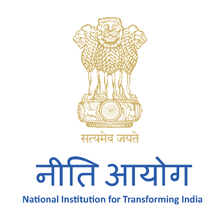The Concept of NITI
Under the directive of PM NITI(National Institute for Transforming India) plays numerous roles primary being to advise the government on social and economic issues, give various policy measures related to issues that have arisen or may arise in future in a Globalized world.In essence, it is a ground-up policy framing advisoryThink-Tank which aims to create directional rapid development.
Advantages
There is a say by States, UnionTerritories, LeadersOfIndustry, Economists, Sociologists, ForeignNationals, Think-tanks, Departments which ensures an inclusive, innovative, practical & fast development of State as well as Centre.In its true sense, NITI will lead to decentralization with framing at the village level.Then it is taken up by higher authorities.This ensures best possible solutions for local socio-economic problems.It reduces the time and provides benefits direct to the intended.Evaluation and monitoring will enable an adaptive process of reaching goals.
Challenges
There is a huge challenge to create inclusive policies considering the large socio-economic diversity of the country.AdvisoryMembers powers are not clearly demarcated.Ensuring that neglected members are helped will be a major challenge.Without an alternate budget mechanism in a way, the hands of NITI Aayog are tied.The real Challenge before the NITI Aayog is to suggest ways and means that tackles a problem of Centre—Sate standoff about the allocation of resources.India has a Unitary Constitutional Set up with Federal features.The States have always aired their grievances about Centre\’s apathy towards them.The GST issue is a case in point.NITI Aayog\’s impact on government policies will depend on the capacity to convince the political leadership urgency and inevitability of reforms because in India Good Economics has never been Good Politics.
